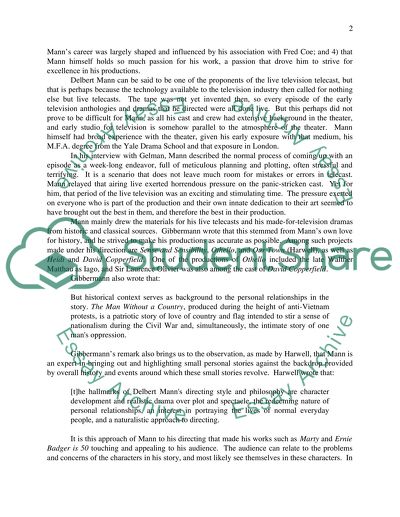Cite this document
(Delbert Mann and the Development of Television Assignment, n.d.)
Delbert Mann and the Development of Television Assignment. Retrieved from https://studentshare.org/sociology/1504217-delbert-mann-and-the-development-of-television
Delbert Mann and the Development of Television Assignment. Retrieved from https://studentshare.org/sociology/1504217-delbert-mann-and-the-development-of-television
(Delbert Mann and the Development of Television Assignment)
Delbert Mann and the Development of Television Assignment. https://studentshare.org/sociology/1504217-delbert-mann-and-the-development-of-television.
Delbert Mann and the Development of Television Assignment. https://studentshare.org/sociology/1504217-delbert-mann-and-the-development-of-television.
“Delbert Mann and the Development of Television Assignment”. https://studentshare.org/sociology/1504217-delbert-mann-and-the-development-of-television.


